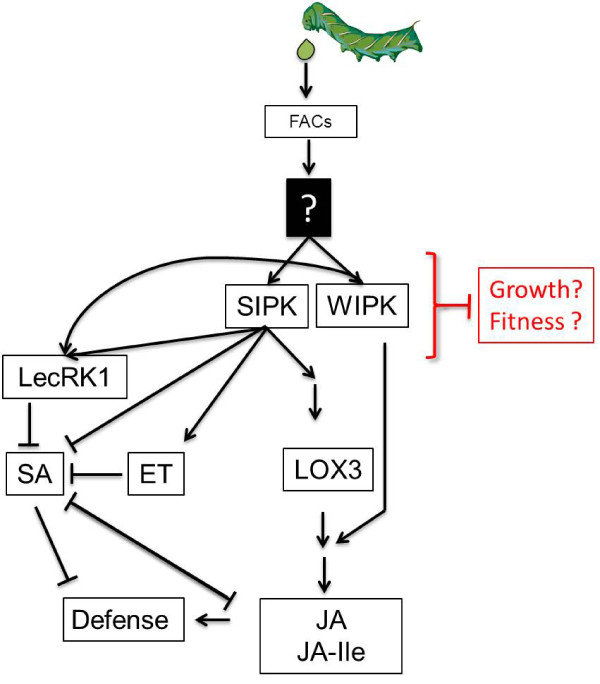Figure 1.
Herbivory-induced signaling in N. attenuata. Oral secretions of Manduca sexta contain fatty acid-amino acid conjugates (FACs), which are perceived by Nicotiana attenuata through an unknown perception event (black filled box with question mark), leading to the activation of salicylic acid-induced protein kinase (SIPK) and wound-induced protein kinase (WIPK). SIPK and WIPK regulate transcripts of LecRK1, which is a negative regulator of SA. SIPK and WIPK regulate biosynthesis of jasmonic acid (JA) and its isoleucine conjugate (JA-Ile). SIPK, but not WIPK, also regulates ethylene (ET) emissions, possibly leading to suppressed SA levels, thereby allowing unfettered JA/JA-Ile-mediated defense responses. Growth and fitness consequences of SIPK and WIPK-regulated signaling are unknown (red box).

